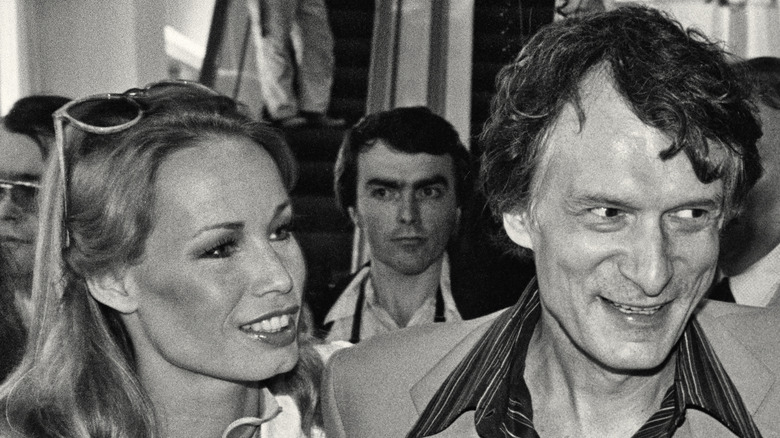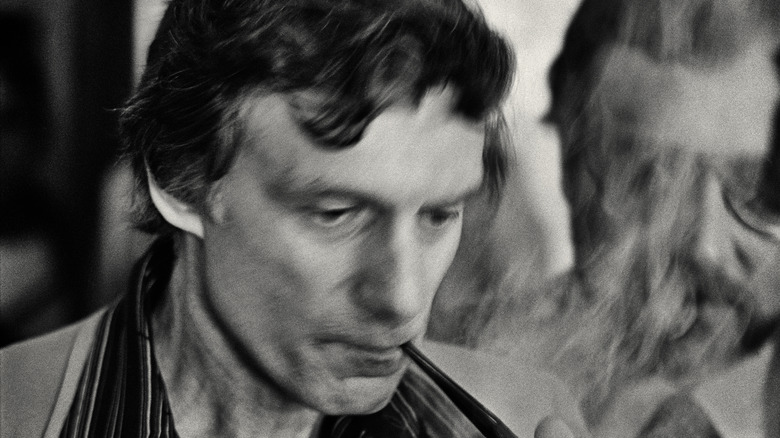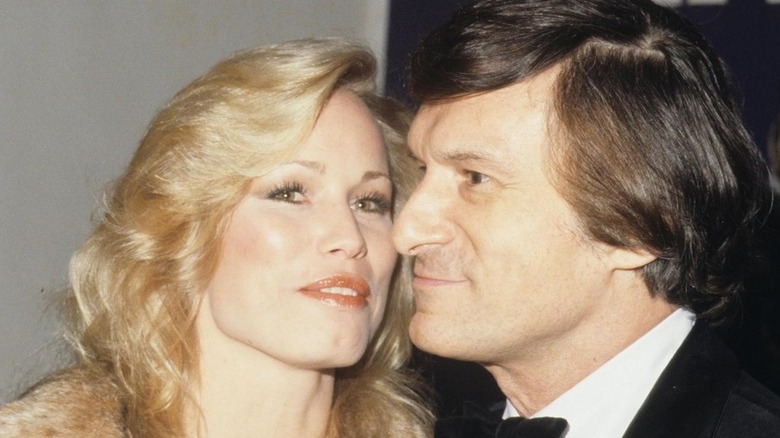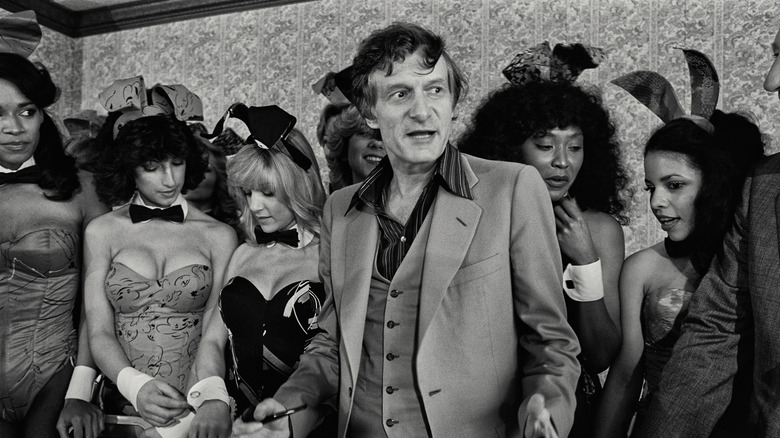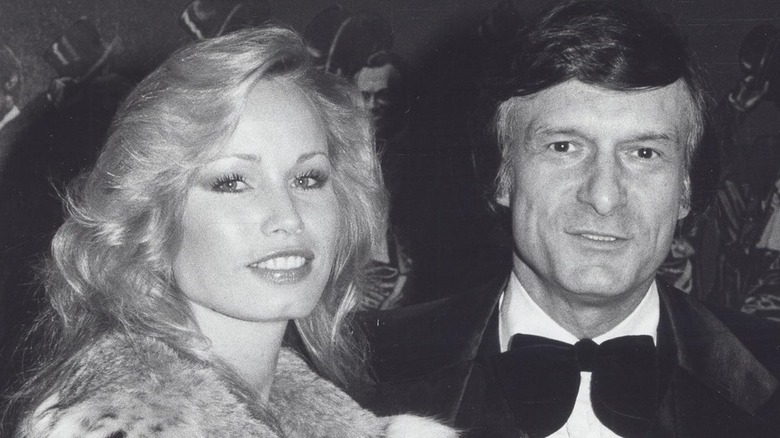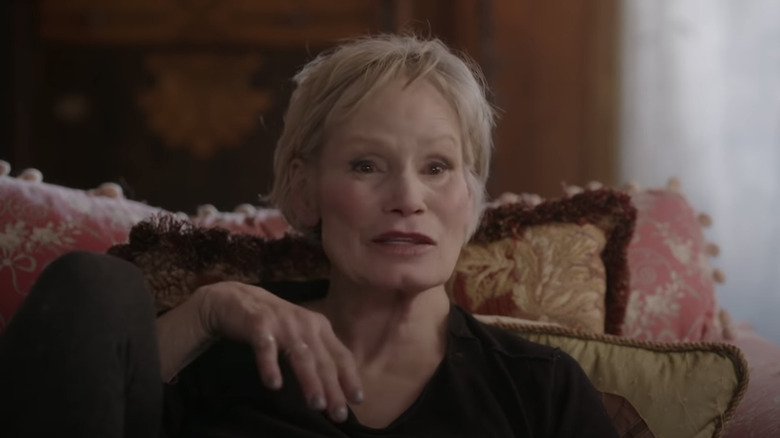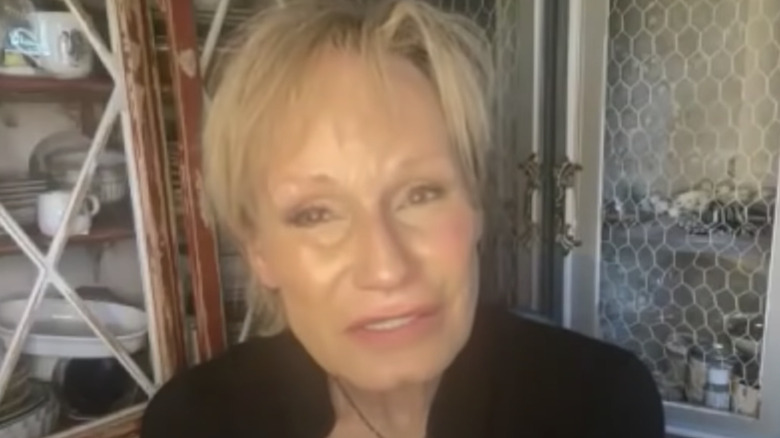What You Never Knew About Sondra Theodore
Sondra Theodore might have been a relatively obscure name for anyone who wasn't around in the 1970s — up until recently, that is. Theodore, who was in a relationship with Playboy founder Hugh Hefner from 1976 to 1981, has largely lived a private life since her relationship with the media mogul ended. That all changed with the release of A&E's "Secrets of Playboy," a 10-part docuseries that in part explores what it was like to live in the Playboy mansion.
Theodore was only 19 years old when she met Hefner, a man she would later tell Fox News was "very, very charming." Despite the decades between them (Hefner was 50 years old when the two were introduced), Theodore believed she was in love. When she looks back, though, Theodore can see the situation for what it really was. As she said, "I was groomed. It was a slow grooming to get to that point. And he broke me."
Theodore has also shared she's happy she participated in the documentary, telling The Mountain News that she hopes her story helps other women. Here's a look at one of the women who knew Hefner the best, and what her life was like with him.
Sondra Theodore dated Hugh Hefner from to 1976 to 1981
Few people knew the name Sondra Theodore before the release of the A&E Documentary "Secrets of Playboy," but now that the documentary is out, many have become curious about her. Theodore told Fox News that she met Hefner after attending a party at his home — her best friend from high school invited her along, and it seemed like a fun thing to do. As she shared, Theodore didn't know a lot about the world she was about to walk into.
Theodore said that things were pretty straightforward. As she explained, "We wanted to check out what the party was all about. We ended up being introduced to him and he then took us on a tour of the property, just the two of us." However, she also told the news outlet that before she went, her mother had tried to warn her against making the trip. As Theodore said, "She immediately went, 'Oh no, please don't go up there.' I told her, 'Don't worry, I'm going with my friend and we're coming back home together.'"
Theodore went on to add that she was hooked on Hefner before leaving that night. After the twosome danced to "Baby Blue" by Barry White, she "was in love before the night was over."
She says Hugh Hefner talked about starting a family with her
The relationship between Sondra Theodore and Hugh Hefner progressed quickly, with Theodore explaining to Fox News that she became Hefner's girlfriend almost immediately. Though she waited several months before moving into Hefner's home, once she did, "Things just started snowballing, and before I knew it, I was there for over five years."
In retrospect, Theodore sometimes struggles to believe that the relationship happened. As she told the news outlet, being with Hefner made her feel exceptional. The relationship was serious; Theodore says that Hefner lavished her with compliments. She explained, "He used to tell me that he had never liked a girl as much as he liked me. How he would love to have a child with me. How we were going to live happily ever after."
That family and happily ever after didn't happen, and Theodore told Fox News that she believes Hefner knew that would be the case the entire time. As she puts it, it's her belief that he had no intention of being with her forever at all.
Sondra Theodore's parents worried the relationship would ruin her career
Her relationship with Hugh Hefner ended up having a devastating effect on Sondra Theodore's career. She told Fox News that at the time she met Hefner, she was well on her way to establishing an acting career, but suddenly everything came to a halt. She later found out that Hefner wasn't supportive of her having a career outside of their relationship. She explained, "My phone had been ringing off the hook ... And then all of a sudden, my phone wasn't ringing anymore. I mentioned it to [Hefner] and he said, 'You don't need to work anymore.'"
Her parents had been concerned from the start. In 1977, Theodore told The San Bernardino Sun that her parents expressed worry about her being photographed for Playboy. As she put it, "They're really concerned, but within time it'll blow over. It'll become just a memory" (via Newspapers.com).
Theodore also recounted to Fox News that in the end, her parents were justified in their concern. She found out after their split that she had been up for a movie role alongside Mary Tyler Moore, but Hefner wouldn't let her pursue it. She also discovered that Hefner had sent out a notice stating that no one could help her find work; as she put it, "... if I didn't have any money, I couldn't leave. He kept me secluded and pretty much under his thumb."
She has wanted to tell her story for 10 years
Of course, some people have wondered why Sondra Theodore waited so long to tell her side of things, but she gave Fox News the straightforward answer: She was never allowed to. Both Theodore and her friend, Miki Garcia, wanted to share their stories but were never given a platform. As Theodore explained, the machine behind Hugh Hefner and Playboy was strong. She said, "We were blocked at every turn. We had people who were interested, and then all of a sudden they weren't interested. We were being shut down."
In a lot of ways, Theodore was waiting for someone like Alex Dean, the filmmaker behind A&E's "Secrets of Playboy," to come along and help her open up about what really happened behind closed doors. As Theodore related to The Mountain News, while she might have felt trepidation or intimidation before finally speaking out, she's glad she did. Theodore said, "I think this is the beginning of a lot of women coming out. I think when this thing is over, we're going to have a lot of girls that are going to reach out."
Theodore also told The Mountain News that the experience was healing in a big way. For one thing, she felt enormously validated by the documentary itself. She said being taken seriously after so long has helped her immensely. As she put it, "It was real, it happened, and shame on the people that are attacking us."
Sondra Theodore works as an artist in California now
Sondra Theodore is currently in her mid-60s, and the California native lives and works in her home state as an artist. Theodore hasn't been as open about her current life, likely for good reason: She has had enough publicity based upon an era of her life she'd likely love to leave behind. But on her Instagram account, it appears that Theodore spends some of her time repurposing old furniture and home goods.
The Cinemaholic has also revealed that Theodore is a mom and grandmother, and that she has plenty of pets at home to boot. In fact, Theodore told Fox News that her children are part of the reason she decided to finally speak out in the documentary, explaining, "I hope my kids can be proud of me for it. I hope they're proud of me for coming forward. They're my salvation." While she admits that her children have encouraged her to move beyond the experience, for Theodore, speaking out in the documentary is part of that process.
Sondra Theodore supports #MeToo
It probably isn't too surprising that Sondra Theodore is a big supporter of the #MeToo movement. The phrase #MeToo was first used by Tarana Burke in 2006, who used the phrase as a rallying point for women who wanted to share their experiences with sexual violence. In 2017, Alyssa Milano used the phrase online, which sparked a larger collective conversation (per Verywell Mind).
Theodore credits the movement with helping the "Playboy" documentary come about in the first place. As she told The Mountain News, it would have been tough for the documentary to have a home without #MeToo. She explained, "We would not have been embraced and accepted like we are right now. If it hadn't been for them. They broke the ice. It made people listen."
Theodore went on to tell the newspaper that the biggest reason she wanted to share her story was for other women who have their own stories but have never had someone who would listen, or someone they could relate to. As she put it, "I wanted them to know they weren't alone. And it wasn't their fault."
